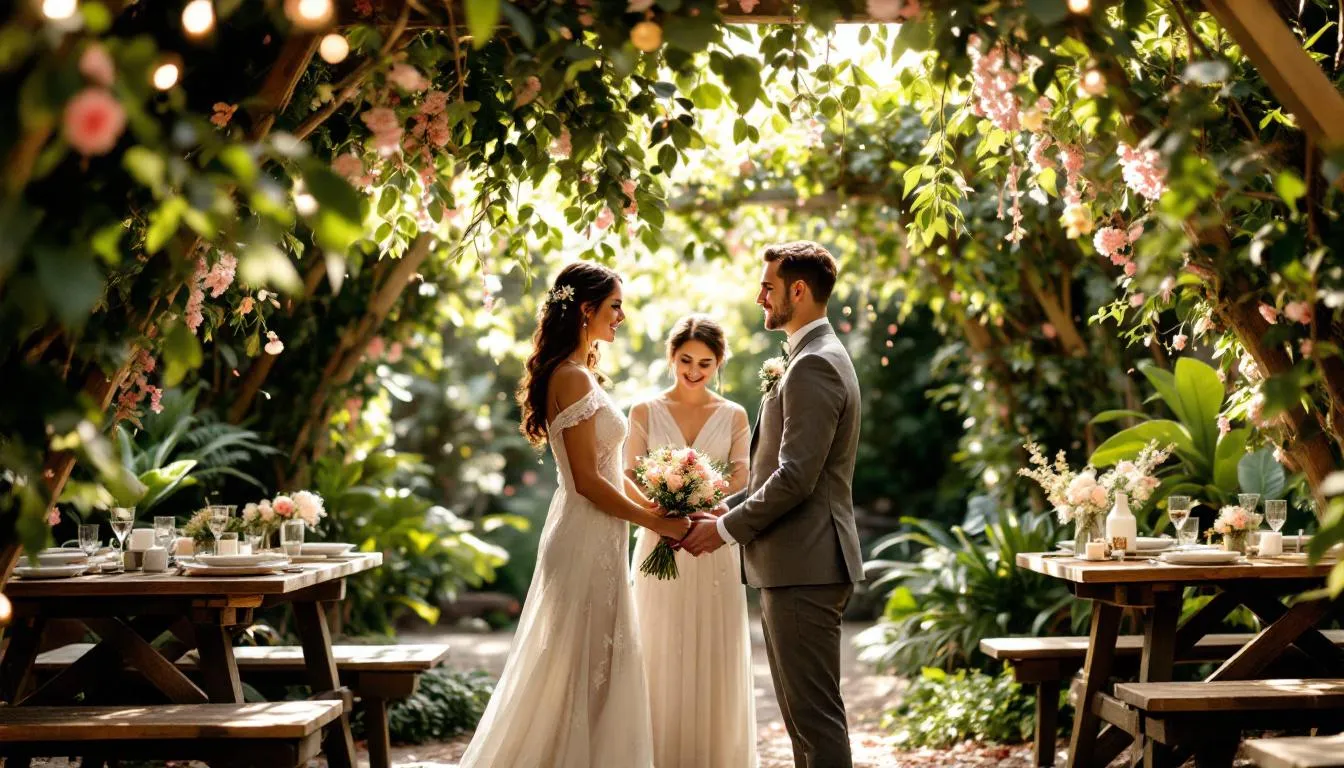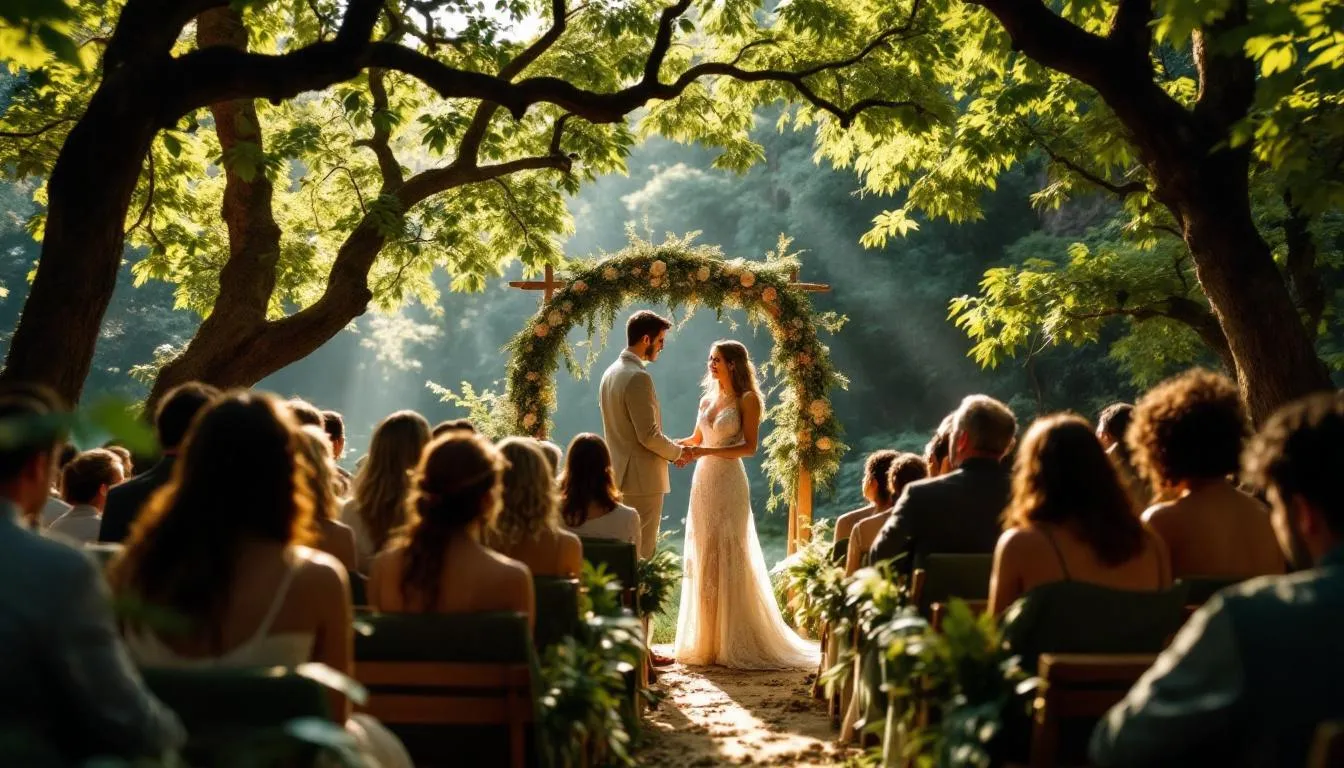
In today’s world, planning a wedding goes beyond beautiful décor and perfect vows—it includes embracing values that protect our planet. Eco-friendly weddings celebrating love sustainably are more than a trend; they’re a reflection of a generation prioritizing environmental responsibility, local economies, and conscious consumerism.
Modern couples are increasingly opting for eco friendly practices that reduce their carbon footprint, minimize food waste, and support renewable energy sources—without sacrificing the beauty and joy of their special day. From recycled paper invitations to sustainable decor and seasonal menus, here’s your definitive guide to planning a wedding that honors both your love and the Earth.
Embracing Sustainable Wedding Values
Sustainability starts with intention. Before booking a vendor or choosing flowers, set your wedding priorities with eco-conscious values in mind. This might mean:
-
Reducing your environmental footprint
-
Supporting local businesses and local farmers
-
Choosing sustainable materials and eco friendly gifts
-
Reducing paper waste, single-use plastics, and leftover food
These core values will help guide every decision and align your wedding with a vision of a more sustainable future. It’s also helpful to communicate your eco intentions with your guests. A wedding website or printed insert can gently encourage them to carpool, reuse outfits, or bring reusable bottles.
Spring and Summer: Nature’s Wedding Gift
Opting for a spring or summer wedding offers natural advantages that align with green wedding planning:
-
Longer daylight hours reduce the need for artificial lighting, helping you cut down on energy use.
-
These seasons offer a variety of seasonal blooms, reducing the need for imported flowers.
-
Many eco friendly venues offer outdoor ceremonies with scenic backdrops, meaning less décor is needed.
Incorporate solar-powered lighting and energy efficient lighting in outdoor areas to further reduce your carbon emissions. For more on seasonal planning, read our post: Wedding Seasons: How to Pick a Wedding Date.
Choosing an Eco-Conscious Venue
One of the biggest sustainability decisions you’ll make is choosing your wedding venue. A truly eco friendly venue does more than offer pretty views. Look for venues that:
-
Use renewable energy sources
-
Provide recycling and composting options
-
Source local ingredients for catering
-
Have green certifications like LEED or Green Globe
Also, consider venue accessibility. Holding your event near where most guests live helps reduce transportation-related emissions. This is especially important if you’re inviting guests from out of town—check if the venue partners with hotels that practice sustainable hospitality.
Accessibility & Inclusivity: Sustainability for All
An eco friendly celebration is also one that is inclusive, accessible, and thoughtful of all attendees. Ask yourself:
-
Does the venue have accessible parking and restrooms?
-
Are your menus inclusive of all dietary restrictions, including vegan, gluten-free, and kosher?
-
Can guests easily access eco friendly transportation options such as rideshares, electric vehicle charging stations, or bike parking?
This holistic approach is at the core of prioritizing sustainable practices while caring for your community.
Eco-Friendly Invitations and Stationery

The average wedding invites 100–150 guests. That’s hundreds of pieces of paper, envelopes, RSVP cards, and menu inserts—all of which contribute to paper waste.
Sustainable Alternatives:
-
Digital invitations: Platforms like Greenvelope offer elegant online invites with tracking.
-
Recycled paper: If physical invitations are a must, choose recycled paper or seed paper invitations that grow into wildflowers.
-
Minimal designs: Reduce ink and dyes. Choose soy-based inks for a more environmentally friendly option.
For couples who prefer physical invites, consider a single flat card with a QR code directing guests to a digital wedding website.
Sustainable Décor and Floral Choices
Decor can create major waste if not approached with sustainability in mind. Rather than purchasing disposable or synthetic items, opt for reusable, rentable, or biodegradable options.
Seasonal Blooms
Choosing locally sourced flowers helps cut down on emissions caused by transportation. Here’s a quick seasonal flower guide:
|
Season |
Flowers |
|---|---|
|
Spring |
Ranunculus, Peonies, Tulips |
|
Summer |
Sunflowers, Zinnias, Lavender |
|
Fall |
Dahlias, Marigolds, Asters |
|
Winter |
Amaryllis, Holly, Evergreen |
Beyond Flowers
-
Decorate with potted plants or succulents that guests can take home as eco friendly favors.
-
Renting decor (vases, candle holders, arches) is better than buying.
-
Use diy decorations from recycled materials like glass jars, burlap, or salvaged wood.
Attire and Accessories with a Conscience
Fashion is a huge part of the wedding day, but it doesn’t need to come at the environment’s expense.
Tips for Sustainable Wedding Attire:
-
Rent your gown or tuxedo through platforms like The Black Tux.
-
Buy secondhand or vintage from sites like Stillwhite.
-
Choose designers that use sustainable fabrics like organic cotton, bamboo silk, or hemp.
Extend these values to the wedding party by allowing them to wear something they already own or choose outfits they can reuse for future events.
Sustainable Catering and Food Choices
Food is a central part of your wedding—and one of the biggest sources of waste. Up to 10% of wedding food ends up as leftover food, much of it going straight to landfill.
Smart Catering Solutions:
-
Choose seasonal produce from local farmers for fresh, low-impact menus.
-
Serve plant-based dishes as mains or sides to reduce your environmental footprint.
-
Avoid buffets, which tend to lead to more food waste.
-
Coordinate with organizations like Feeding America to donate leftover food.
Green Transportation Solutions
Help guests get to your wedding in a low-carbon way.
Suggestions:
-
Offer shuttle buses or group transportation to reduce individual car usage.
-
Arrange carpooling groups in your invitations or wedding website.
-
Suggest bike-friendly access for local guests.
-
If feasible, provide options for eco friendly transportation like electric vehicle rentals.
And don’t forget to encourage guests to offset carbon emissions for long-distance travel through platforms like Terrapass.
Waste Management and Post-Event Practices
After the last dance, the work isn’t done. Proper waste management ensures your sustainable celebration ends on a responsible note.
-
Provide clearly labeled bins for recycling, compost, and landfill.
-
Work with a green cleanup team that understands sorting.
-
Repurpose leftover items (flowers, food, décor).
-
Donate attire or sell it online to reduce post-event waste.
Thoughtful Wedding Favors and Gifts
Traditional favors—plastic trinkets, photo frames—often end up forgotten or discarded. Opt for eco friendly gifts that reflect your values.
Eco-Friendly Favor Ideas:
-
Seed packets or plantable seed paper
-
Local honey, handcrafted soaps, or artisan snacks
-
Charitable donations in lieu of physical favors
-
Reusable cups, tote bags, or wooden utensils
Buy from local artisans and small businesses whenever possible to increase your wedding’s local community impact.
Assembling a Sustainable Vendor Team
Choosing the right vendors makes implementing eco friendly choices much easier.
Ask Vendors:
-
Do you use sustainable materials or renewable energy sources?
-
Can you help us manage food waste or recycling?
-
Do you support local farmers, florists, and bakers?
Be sure to read: How to Plan a Minimalist Wedding in Colorado for vendor collaboration tips that reduce environmental strain.
Conclusion: Celebrating Love and Planet

Weddings mark the beginning of a lifelong commitment. By planning an eco friendly wedding, you’re also making a commitment to a healthier planet, a sustainable future, and responsible celebration. Every detail—from eco friendly invitations to green transportation—contributes to a sustainable celebration that honors your love and your values.
“True love is caring—for each other and the world we share.”
Celebrate your big day in a way that’s beautiful, meaningful, and kind to the Earth.
More Advice

https://shorturl.fm/sBBAz
https://shorturl.fm/JSHqn
https://shorturl.fm/nLaFp
https://shorturl.fm/W6JLE
https://shorturl.fm/zdPfv
Can you be more specific about the content of your article? After reading it, I still have some doubts. Hope you can help me. https://www.binance.info/register?ref=IHJUI7TF